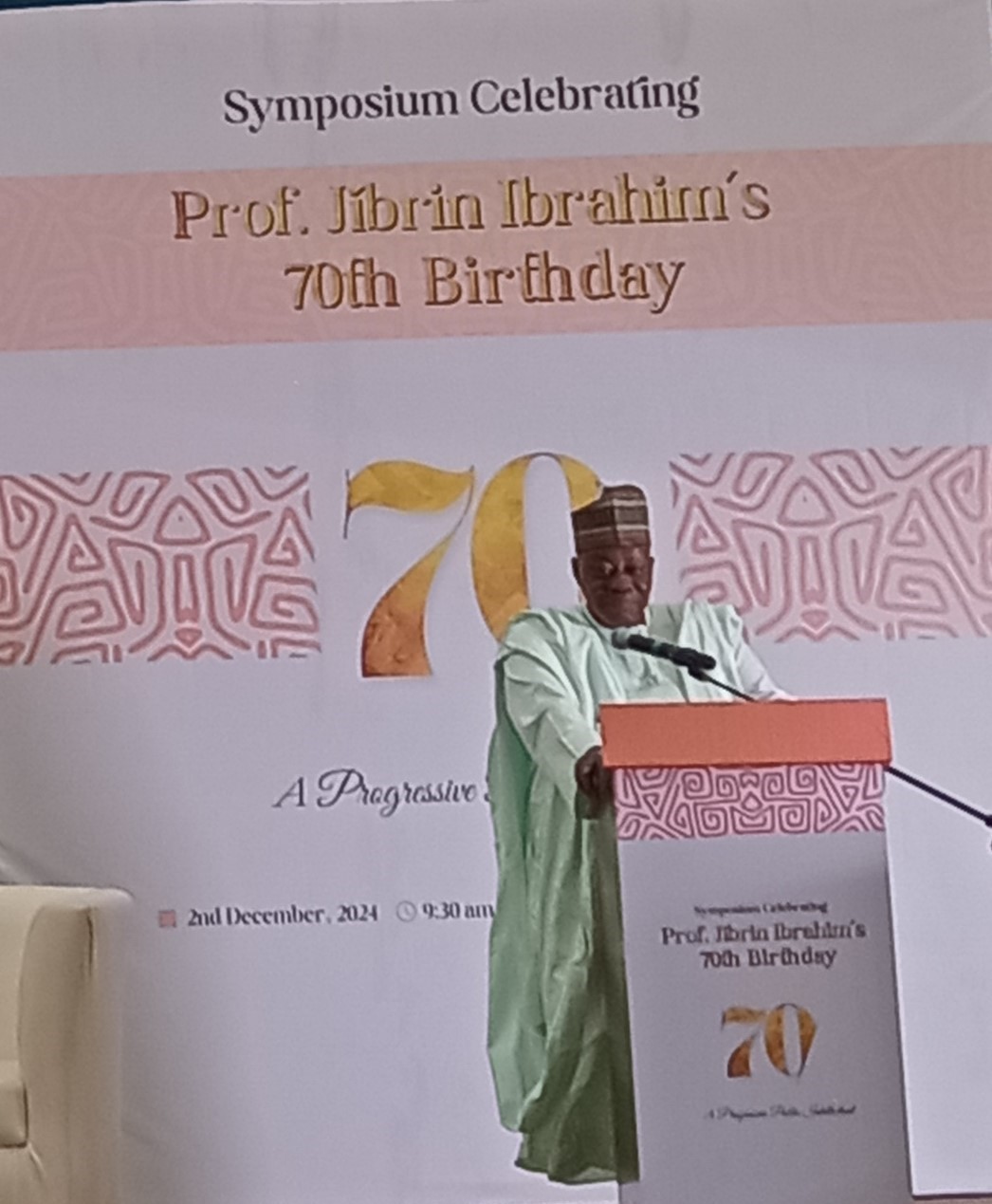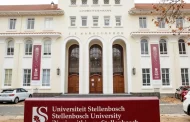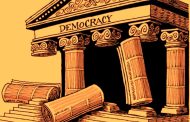By Adagbo Onoja
It seems safe to assume that the 70th birthday anniversary of Prof Jibrin Ibrahim is finally over. But an entire week celebrating a single political scientist in a country of astute political scientists such as Nigeria must serve as a summoning to an unpacking exercise for all critical observers. That is, a summoning to why such could have been possible because it is not a common feature of Nigeria for the birthday of someone who is not holding political office to attract elements from the traditional institution, the Catholic establishment, the bureaucracy, technocracy, domestic and global academia, the civil society and the media. If political science is somehow the study of influence and the influential, then there is something to be curious about the condition of possibility behind Prof Jibrin Ibrahim, hereafter known as Jibo, becoming the subject of re-inscription across numerous sites of celebration between November 30th and December 13th, 2024. For those who may question condensing political science to the study of influence and the influential, especially if they are coming from pre-Gramscian Marxism, I make bold to say there’s nothing out of sync in that, not with the democratisation of hegemony through the radical democratic politics formula, thereby making it no longer the monopoly of elements of the ruling class. And Jibo’s relative popularity and influence in Nigeria today without being a chip off the block of big business or political dynasty should serve as a perfect example.
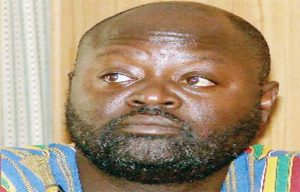
The late Dr. Tajudeen Abdul-Raheem
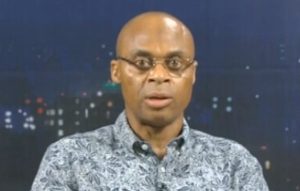
The late Prof Momoh
We must give credit at all times to those who persuaded Jibo to come to terms with the practice of a 70th birthday anniversary and who superintended the exercise as the organising committee. What they have done turns out a pilot project in constructing and naturalising an identity. It is the strategy of hegemony in poststructuralist discourse analysis that may still save Nigeria if mastered better on a wider scale. Should the imperative of mastering the strategy of hegemony catch on, that may become Jibo’s biggest achievement or contribution to the liberation of Nigeria because it helps to push the case for transcending the Marxism of the 2nd International that is still popular in Nigeria. But that’s probably a story for another day.
For now, the substantive question is how we might produce a credible understanding of the existing construction and sedimentation of the reigning Jibo symbolism. The argument here is what the title speaks to or seeks to speak to: the national consensus on Jibo as shown by the attendance and multiplicity of activities across regional, religious, ideological and cultural camps cannot be understood outside of the trauma Nigeria is currently experiencing, the resulting desire for a heroic symbol and the affirmation of same in whomever is seen to approximate the absent hero in popular fantasy. In other words, individuals who wave any banners of hope can quickly take the place of these absent present political leaders in most African countries. The scoresheet for him at 70 testify to this claim even as the message is clear that Jibo cannot be a closed totality.
While the Kole Shettimas took him from the point of the diversity of his exertions, the John Odahs abstracted his domestication of a page from Leninism just as the Amina Salihus have their hook-up in his occasional fallback on informality. Yet, others such as Emir of Kano stress his struggle for democracy while Cardinal Emeritus Onaiyekan privileges the ease of bonding with him. There were celebrants who isolated his soul of personality which they see as being averse to manipulation, intrigues, subterfuge and bellicosity. Yet, others were celebrating his scholarship, the epistemological tension he straddles and the ‘confusion’ as well as the clarity he brought along. What is still clear from the diversity of perspectives is how he does approximate the symbol of a deliverer from collective trauma and the fantasy the experience punctures. I use fantasy here strictly in the Lacanian psychoanalysis sense of it where it refers to the inherent incompleteness of society, an incompleteness that is, however, masked and rarely part of people’s consciousness.
Is Nigeria experiencing trauma? Yes, Nigeria is. Aside from President Tinubu’s barrage of Stalinist tax practices and the frightening lack of elegance in his government’s articulation of power, Nigeria has been a torture chamber since 1986 when the Babangida administration dragged the country into the formal embrace of what was then called Structural Adjustment Programme (SAP). Whether a lame African coup leader with limited ideological grooming as the cabal united under Babangida was could have withstood the Western pressure for SAP is a different issue but SAP has been performative of trauma in the same range as colonialism, famine, genocide, ethnic scorched earth operations and, lately, terrorism/banditry.
As Jenny Edkins reveals in her powerful essay thereto, trauma always breaks radical relationality because it goes beyond the physical pain of the individual victim. It does so as the individual victim finds that all his or her investments in friendship, neighbours, the community, in his or her religion and, most painfully, in the state itself come to nothing at that crucial moment. The absence of the state is usually the most painful, the state being the category whose legitimacy rested on the promise of being the ultimate guarantor of safety for all. That is the sense in which trauma breaks all the bonds, the connectedness, the radical relationality upon which society itself is built. By doing so, trauma exposes the fantasy referred to earlier or the falsehood, the incompleteness of society people are not familiar with. And this is why trauma time, as Edkins points out, is always a dangerous time not just for the individuals affected but even more so for the state. It shows the ‘Empire’ as well as the Emperor’s nakedness. It is the reason intelligent states quickly seize traumatic moments with the narratives of heroism and associated practices of grand burials, memorisation and similar practices. All of such acts of statecraft are discursive or pragmatic although some states enact these practices just because that is what they understand as the standard protocol rather than their awareness of the ideological undertone.
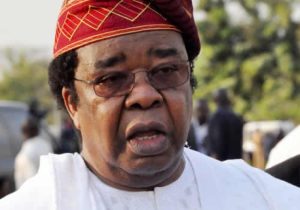
Exemplar of the intellectual of statecraft in Nigeria
In much of Africa, trauma arising from colonialism, famine, wars, inter-ethnic violence, looting of the treasury, SAP and electoral theft constitute a different class of the experience because it betrays something else beyond the radical relationality covered by Edkins. Transformation from the pre-industrial to the industrial society is what every society craves or must crave. This process is, however, a complicated one, particularly the requirement of elaborate pastoral care or guidance for subjects in the process. This guidance is definitive of leadership in the politics of that transition. Here, the leader cannot just be a journey in self-discovery or an office in sovereign power but an inspirer. That’s why it helps if the leader is also a philosopher, a preacher, a diviner and a care-giver, all rolled into one. In Singapore, Lee Kuan Yew was oversighting observance or breaches of the spitting code. What SAP trauma breaches most is the impossibility of any forms of pastoral care from the leader who rather has to find refuge in enhanced tactics of lying, deception, subterfuge and evasiveness. This is the context in which trauma has created a desire for the hero, the very heroism political leadership in Africa is permanently unable to deliver due to pressure and manipulation from outside but also due to the ideological confusion of most African leaders.
The claim about Desire – another psychoanalytic usage leads us back to the other side of hegemony in relation to Jibo, aka Jibogram by which is meant what ABU, Zaria scholar, Muazu Maiwada, calls Jibo’s “unit of measurement” He implies the scales with which Jibo measured all takes on Marxism, the cornerstone of scholarship across Nigeria of yore. Jibogram is, therefore, a serious conceptual category
The first problem with hegemony in this case must be why Jibogram did not feature at all in any of the sites of the 70th anniversary. It is an important issue area since every hegemonic moment has its Lack: the counter-hegemonic challenge from those not included in the hegemonic narrative. In tandem with the instruction to interrogate all ‘silences’, the question about how it happened that no one saw articulatory cum political utility in a cognitive innovation so ontological, so simple, so musical and so everything in counter-hegemonic outing is a big question.
It is followed by yet another tragedy: the silence on what an enhanced Jibo can and should do for the society in the years to come. This silence is so loud as to be disturbing, particularly in the light of Nigeria’s history of failure in this regard. Even Bolaji Akinyemi, arguably, most prominent example of the intellectual of statecraft in Nigeria never fared well. That must be Bolaji Akinyemi who made challenging Nigeria to the greatest height the core of statecraft obviously didn’t get that acknowledgement. Otherwise, there’s no reason why his ‘Farewell to Policy’ should not have been the subject of seminars in the Villa now and then, in the military academies and even in the civil society. It certainly hasn’t been, notwithstanding the key issues he has raised there and which warrant constant evaluation. Tired and probably angry, Akinyemi has stopped pushing, if one takes his last outing at the Nigerian Institute of International Affairs (NIIA).
As long as the state remains a key variable in human affairs, intellectuals of statecraft will remain indispensable to governance, whatever ideological and other differences successive governments might have with particular ones. This practice of came to the climax under the Murtala/ Obasanjo regime and Nigeria was the winner. The direction of foreign policy testifies to this. Whatever shade of reputation Nigeria still has lies in that moment. The Babangida regime is the ultimate practitioner of that art but the policy framework of that regime denies the intellectuals involved the kind of inputs that can be celebrated other than the quantitative credit for Babangida. In his second coming, Obasanjo had very little of that practice. The era of the All Progressives Congress (APC) has seen to the complete death of the practice.
But at a time of a serious geopolitical glitch and worsening African condition in the world, a country such as Nigeria must be in the forefront of advancing the conversation beyond the rule of the thumb reasoning. After all, European leaders were not a bunch of unintelligent actors when the Halford Mackinders of Europe were sketching out the discipline of geopolitics in a manner once beautifully described by Prof Michael Heffernan as “an imperial, Eurocentric planetary consciousness” defined by “a masculinist, ex-cathedra vision of a dangerous world viewed from the commanding heights of governmental and academic institutions”.
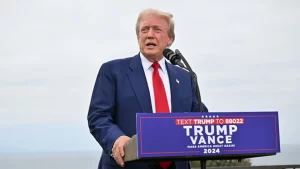
Just a few weeks to Trump 2.0 ‘wahala’
Halford Mackinder keeps featuring in my exemplification of what intellectuals of statecraft can do or be made to do not because he is necessarily the best example as Germany is basically what intellectuals of statecraft at a particular point in its history have made it to be. And the United States too. And so on and so forth. Mackinder keeps reoccurring in my example because his “The geographical pivot of history ” has created consequences that explains much of Africa as a conundrum, be it the synthesis of Africa as a problem for modernity or the grave privatisation Africa went through in the Cold War which his 1904 lecture was a major provocation. Any country that, therefore and for whatever reasons has no tradition of organising how to benefit from intellectuals of statecraft is simply fooling itself.
In an age in which science, nutritional practices, medicine and technology have combined to eliminate age and ageing as a crucial variable, someone such as Jibo and all persons with that grounding or capacity for abstraction can and must do more for society. But this doesn’t have to be from such people think the society needs. It is even better if it is what society decides that such individuals are best placed to do for it. This is this leg of the tragedy that no such challenges were thrown at Jibo anywhere during the celebrations.
Nigeria and Africa are deeply dislocated. Jibo has literature review skill by which he can draw a grand inference at little or no cost to anybody. Yet, no such challenge was thrown at him
Two, the Anthropocene is crashing out of history. The era of “man as measure of all things” is gradually coming to an inglorious end as other actors are coming in – animals, technology, climate, ancestors, etc. It may not sound comfortable to some of us but that’s besides the point. The existing stock of knowledge on this reality calls for strategies of how best to manage it rather than pretend it is not here. Who better than the Jibos in our midst to plug into what exactly is happening, why and how best to cope with it in the African context? How did it happen this sort of thing never surfaced at the celebrations? Is it possible we don’t feel threatened or is it that we are not aware of what is up? How can we not be aware even if just our experience of the weather condition between March and June this year?
Education has basically collapsed completely in Nigeria except for those still listening to incoherent assurances of distant officialdom. As Prof Yakubu Ochefu, an insider, warned at one of the sites of the Jibo birthday functions, unless Nigeria holds a conversation on the university in the 21st century, it runs a risk. The system, if he is to be believed, has now reached the limit of dislocation. The Nigerian government as it presently exists will never call such a conversation partly because it is outside the scope of its comprehension and partly because the government is peopled by elements who believe in the elite consensus that the universities had become too powerful for the state and must be devastated to nothingness. But does it mean that if the government will not get the universities to their heels, no other options exist? The Jibos in our midst can respond to this by leasing the studying of the phenomenon.
Neither Jibo nor any of the about a dozen or political scientists in Jibo’s category as an intellectual of statecraft have got the money. The genius associated with intellectuals of statecraft does not lie in material/financial worth. No. It lies in their expertise in the framing game arising from their grooming in the attribute of “critical distance”. Critical distance means that in spite of the impossibility of objectivity, they can still arrive at agreeable products. So, no mention of any tasks for the Jibos at this point from any quarters throughout the week sends a worrisome signal.
Not mentioned too is any idea about the production of the set of interpreters who can synthesise the works of the intellectuals whose works have excited social activism. No scholar nor the totality of his/her works has a permanent, immutable meaning. It is there the worry lies when the production of younger elements who can impose new meanings on the intellectual/political foot works of the Taju Abdulraheem, Abu Momoh, Henry Ejembi, Bala Usman, Jubril Bala, Bamidele Aturu, Chris Abashi and so on and so forth.
Others may have many more worrisome signals to think about. It is a task to continue to enrich the birthday through all such new thoughts!

